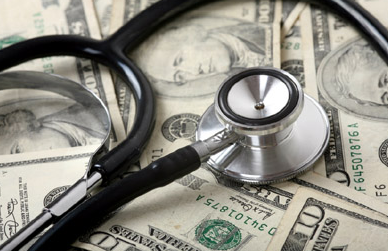With the costs of health care rising every day, people are searching for ways to keep healthy and keep costs down. Luckily, there are everyday things to do that will keep them healthy. These are things people do without thinking about them, but they are things that work. They don’t cost much and many of these things are found in every home every day.
Water
Drinking water every day keeps the body hydrated. Bathing in lukewarm water also keeps skin hydrated. Showering in water too hot dries the skin. Replacing water when people sweat after exercise or brisk walking also keeps the body hydrated. These things eliminate the risk of the muscles and organs slowing down due to lack of moisture. Each body is different, so drinking until the body tells its owner it has had enough will keep the body healthy.
Air
If people would breathe deeply, to the bottom of their lungs, several times each day, they would alleviate stress. They would also get oxygenated blood into their muscles. The body can’t function without oxygen. Making sure it gets what it needs keeps the mind keen, stress at bay and the muscles working at peak performance.
Food
To keep the blood sugar level, eat healthy snacks between meals. Eat more vegetables and fruits than meats. If people need meats, lean is better. Eat lots of chicken and fish. The Omega-3 oils are good for people and support the immune system. Healthy snacks include fresh fruits and veggies, whole grain crackers and cereals, nuts and health bars and snacks. People can actually lose weight eating small controlled meals every day. Make sure to brush and floss because, according to sedation dentist Fishers IN, a mouth in ill health can adversely affect the rest of the body.
Vitamins
A vitamin and mineral supplement is a good thing, but some of them need other vitamins and minerals in order to work. To that end, get out into the sun for at least 15 minutes each day. Vitamin D helps the body absorb calcium, which is important to bone and teeth health. It’s free and it works. Don’t stay in the sun too long without protection, though, because that can cause burning. Drying out the skin that way is harmful.
Saving money on health costs is as simple as doing everyday tasks, eating everyday foods, breathing deeply, and exercising. Take a walk or go for a swim. It will keep health costs down.
In conclusion, incorporating everyday habits into your routine can significantly reduce healthcare costs by promoting overall well-being and preventing illness. Staying hydrated by drinking plenty of water and bathing in lukewarm water helps maintain skin and organ health, which is essential for optimal bodily function. Deep breathing exercises not only alleviate stress but also ensure that oxygenated blood reaches all parts of the body, keeping muscles and the mind functioning effectively.
A balanced diet rich in vegetables, fruits, lean meats, and Omega-3 rich fish like chicken and fish can stabilize blood sugar levels and support the immune system. Healthy snacking on fresh produce, whole grains, nuts, and health bars can aid in weight management and improve overall health. Additionally, maintaining good oral hygiene by brushing and flossing regularly is crucial, as poor dental health can negatively impact the entire body.
Taking vitamins and mineral supplements can be beneficial, especially when complemented by natural sources like sunlight for Vitamin D. Just 15 minutes of sun exposure daily helps the body absorb calcium, vital for bone and teeth health. However, it is important to protect the skin from prolonged sun exposure to prevent damage.
Incorporating these simple, cost-effective habits into your daily life—staying hydrated, eating a nutritious diet, breathing deeply, exercising regularly, and getting adequate sunlight—can lead to substantial savings on health care expenses. Regular physical activity, such as walking or swimming, not only keeps the body fit but also enhances mental health, reducing the need for medical interventions.
By consciously adopting these practices, individuals can enjoy improved health outcomes and reduced medical costs. Ultimately, these small yet impactful changes contribute to a healthier, more cost-effective lifestyle, proving that preventive care and mindful living are key to managing health care expenses.




